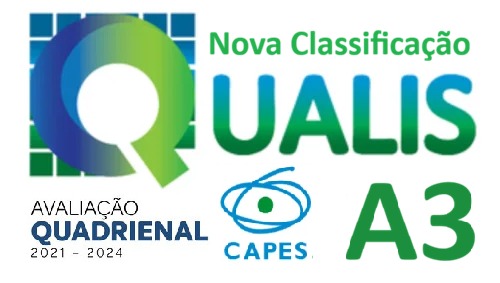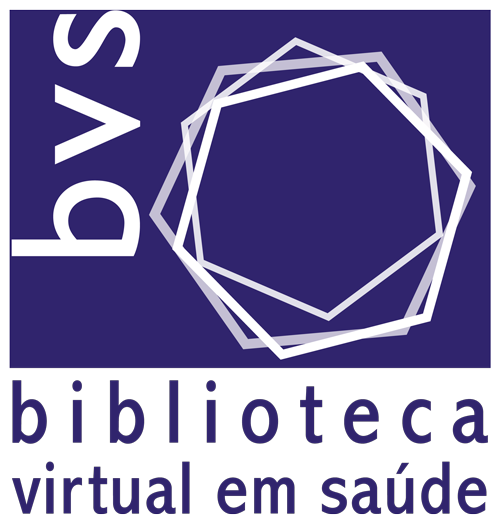Characterization of calcium bentonite to use as a natural barrier in a surface repository
DOI:
https://doi.org/10.15392/2319-0612.2022.1956Palabras clave:
CENTENA, surface repository, natural barrier, calcium bentonite, characterizationResumen
The wide use of nuclear technology in Brazil generates radioactive waste that, in general, have low and medium levels of radiation. This requires efficient management to keep the environment, humans and future generations safe. CNEN coordinates the CENTENA project which will consist of the implementation of the first national repository that will be a definitive solution for the storage of radioactive waste. It will be surface and multiple barriers, and bentonite will possibly compose the natural barrier, since it has good sorption capacity for several radionuclides and low hydraulic conductivity. This paper describes the practical work that followed the clay characterization protocol for use in a surface repository with calcium bentonite and proposes a future study to characterize the mixture of soil and bentonite with the addition of 8% and 15% clay in the soil in order to investigate what will be the best feasible combination to maintain the safety and economic viability of the project. XRD results confirmed the presence of montmorillonite, particle size analysis identified that 40% of the measured sample had an average particle size between 8.0 and 10.0 µm, the global average bentonite moisture was 14%, the high specific surface area value 82.741m2/g, the particle density value was 2.5287 ± 0.0057 g/cm³ and the result of the cation exchange capacity by the methylene blue adsorption method was 750 ± 18.71 mmol.kg-1. All these results indicated that calcium bentonite is a good natural material to be used in the Brazilian repository.
Descargas
Referencias
COMISSÃO NACIONAL DE ENERGIA NUCLEAR. “Aplicações da Energia Nuclear”, Available at:< http://www.cnen.gov.br/images/cnen/documentos/educativo/aplicacoes-daenergianuclear.pdf>. Last accessed: 17 Jan 2022, (2015).
. COMISSÃO NACIONAL DE ENERGIA NUCLEAR. CNEN-NN-8.01: Gerência de Rejeitos Radioativos de Baixo e Médio Níveis de Radiação. Resolution CNEN 167/14. Rio de Janeiro: CNEN, 2014. Available at :< http://appasp.cnen.gov.br/seguranca/normas/pdf/Nrm801.pdf> Last accessed 25 Jan. 2022. CNEN, 2014c
COMISSÃO NACIONAL DE ENERGIA NUCLEAR. CNEN-NN-8.02: Licenciamento de Depósitos de Rejeitos Radioativos de Baixo e Médio Níveis de Radiação. Resolution CNEN 168/14. Rio de Janeiro: CNEN, 2014. Available at :< http://appasp.cnen.gov.br/seguranca/normas/pdf/Nrm802.pdf> Last accessed 25 Jan. 2022. CNEN, 2014b
C. C. O. TELLO; L. T. V. COSTA, “Camada de Recheio em Repositório para Rejeitos”, Centro de Desenvolvimento da Tecnologia Nuclear (CDTN / CNEN), Belo Horizonte, Brazil (2012).
INTERNATIONAL ATOMIC ENERGY AGENCY, Performance of engineered barrier materials in near surface disposal facilities for radioactive waste, IAEA, Vienna, Austria (2001) (IAEA-TECDOC-1255).
. D. M. M. SANTOS, Elaboração de protocolo, para caracterização de argilas como material de recheio e de cobertura para repositório de superfície, CDTN/CNEN, Belo Horizonte, Brazil (2017)
. S. A. BARROSO, Estudo de uma mistura de solo e bentonita brasileira utilizando um protocolo para caracterização de argilas. CDTN/CNEN, Belo Horizonte, Brazil (2019)
] CENTRO DE DESENVOLVIMENTO DA TECNOLOGIA NUCLEAR, Determinação do teor de umidade em argilas. CDTN/CNEN, Belo Horizonte, Brazil (2005). (Rotina Técnica – RT 0417 (SN1) LABCIM/CDTN).
CENTRO DE DESENVOLVIMENTO DA TECNOLOGIA NUCLEAR, Determinação da capacidade de troca catiônica (CTC) de argilas, utilizando o Método de Adsorção de Azul de Metileno (AAM), (Nota Interna, NI-SEGRE-01/2012). Belo Horizonte: CDTN/CNEN, 2012.
ASSOCIAÇÃO BRASILEIRA DE NORMAS TÉCNICAS, ABNT NBR 6.502: rochas e solos. ABNT, Rio de Janeiro, Brazil (1995).
BERGAYA, F., THENG, B. K. G., LAGALY, G. Handbook of Clay Science. 5. Ed. Developments in Clay Science, Elsevier, Volume 1, 2006. DOI: https://doi.org/10.1016/S1572-4352(05)01001-9
Descargas
Publicado
Número
Sección
Licencia
Derechos de autor 2022 Brazilian Journal of Radiation Sciences (BJRS)

Esta obra está bajo una licencia internacional Creative Commons Atribución 4.0.
Licencia: los artículos de BJRS tienen una licencia internacional Creative Commons Attribution 4.0, que permite el uso, el intercambio, la adaptación, la distribución y la reproducción en cualquier medio o formato, siempre que se otorgue el crédito correspondiente al autor o autores originales y a la fuente, proporcione un enlace a la licencia Creative Commons e indique si se realizaron cambios. Las imágenes u otros materiales de terceros en el artículo están incluidos en la licencia Creative Commons del artículo, a menos que se indique lo contrario en una línea de crédito al material. Si el material no está incluido en la licencia Creative Commons del artículo y su uso previsto no está permitido por la regulación legal o excede el uso permitido, el autor deberá obtener el permiso directamente del titular de los derechos de autor. Para ver una copia de esta licencia, visite http://creativecommons.org/licenses/by/4.0/



























